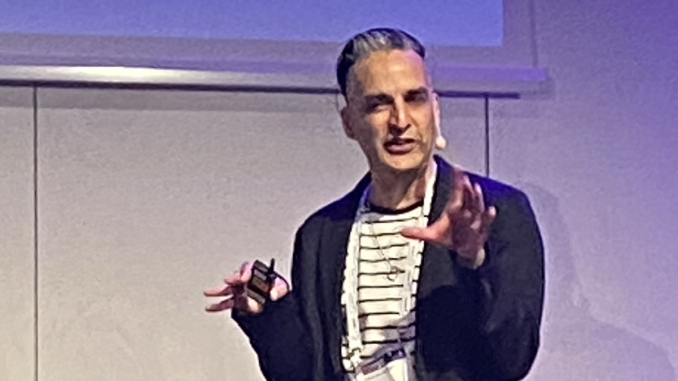
Shirish Kulkarni is a journalist, researcher and community organiser who has spent 25 years as a journalist throughout the UK and is now at the Bureau of Investigative Journalism.
At Radiodays Europe, he presented a workshop on what he calls the ‘Seven building blocks of reflective journalism’.
He says journalism is currently in an existential crisis where peoples trust in their news services has been eroded, for example in the UK only 36% of people says they trust news all the time, while only 44% trust the news service they personally use.
He says that a lot of the problems with current journalism is that it is built on habit, formulas and templates that are no longer relevant because they do not relate to the majority of people, and that people are now demanding news being provided by journalists that live in their area, and not in a metropolitan hub that is unconnected with their daily life.
Stories need to engage young people because they are the audience of tomorrow, and Shirish says most journalists now have, importantly, forgotten how to tell a story as “…we are a species addicted to stories.”
He says that the overall news focus on breaking or moving stories takes the focus away from some of the bigger stories, “…like climate change, that takes places gradually over time.”
His building blocks for journalism are:
Content: Is the information journalists provide what the citizens (not the journalists) need and want.
Context: Citizens want context and analysis, not just breaking or “moving” news.
Agency: Citizens have power and agency and journalists need to provide ways for them to exercise that
Tone :Journalists need to write in a way that is clear, accessible and not defined by the habits of the past
Inclusion: They need not just to listen to different perspectives, but to HEAR and reflect them
Transparency: They need to be clear about how we are reporting and acknowledge gaps
Orientation: Journalism should help us understand the world, locate us in our environment and enable us to meaningfully interact with it., It should help us form views that are consistent with the needs and interests of ourselves and the community.
Shirish says he sees the future to encompass citizen-focussed journalism built with community in mind and leveraging the power of AI and Natural language generation, and finished the workshop with three main points
1. Let’s connect with why we became journalists in the first place
2. Let’s Fixate on creating journalism as a service that meets our needs
3. Let’s move from being gatekeepers to being facilitators
After the workshop he spoke with radioinfo’s Wayne Stamm, and had some good advice for young upcoming journalists.
